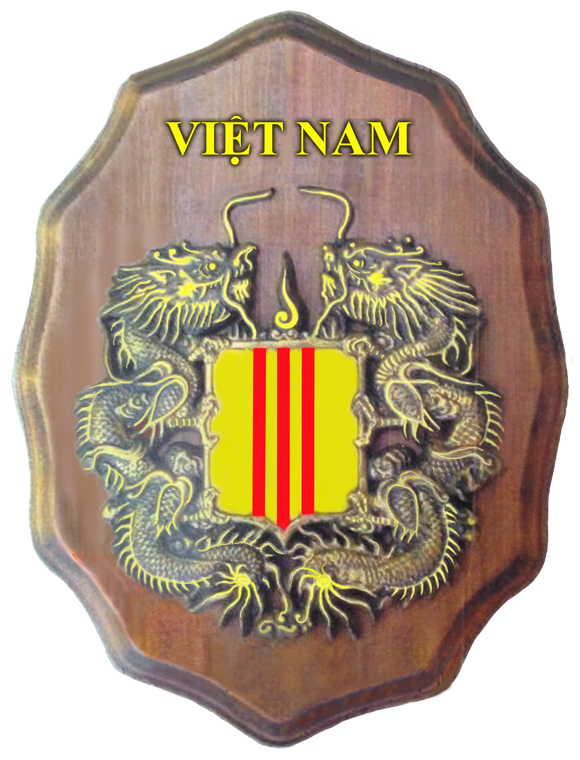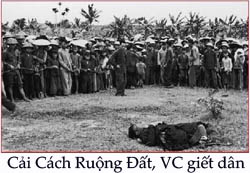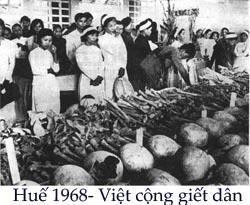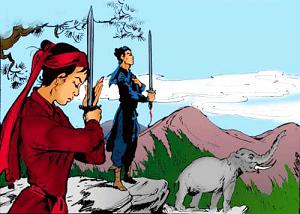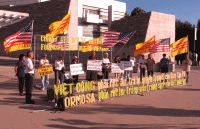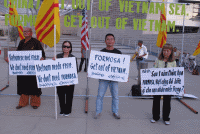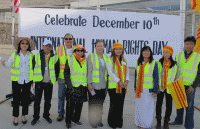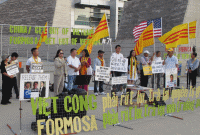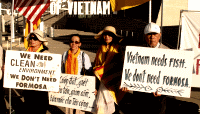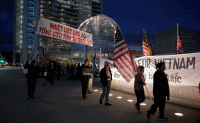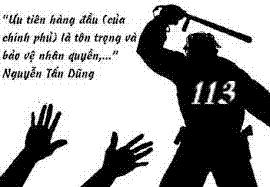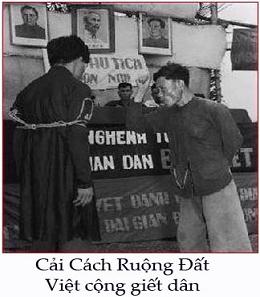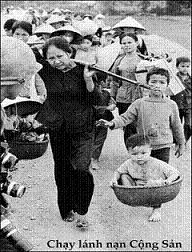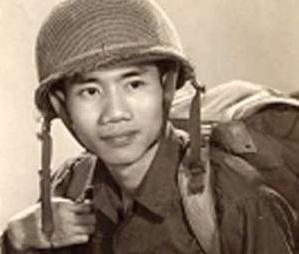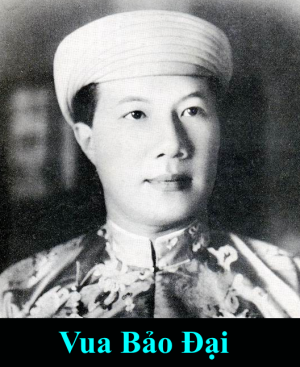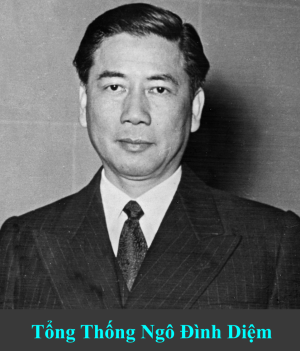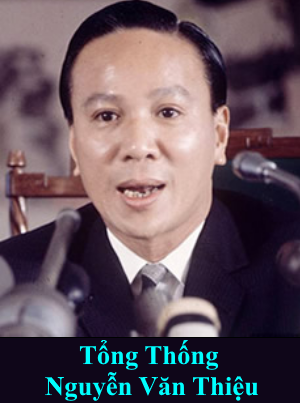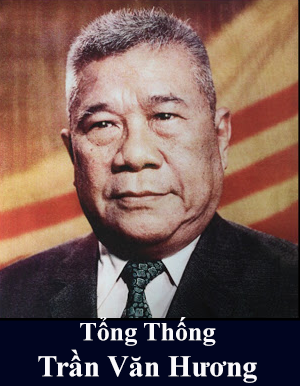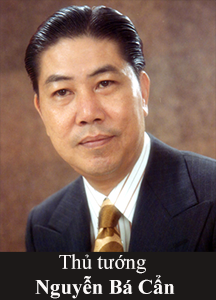Chào mừng Quý vị đến với trang web
Việt Nam Cộng Hòa Pháp Ðịnh !
Trang Chính Phủ Pháp Ðịnh Việt Nam Cộng Hòa
--------o0o--------
Làm hay không làm chính trị cho Quê Hương ?
Bản tiếng Việt
Làm hay không làm chính trị cho Quê Hương ?
- Chính trị là gì ?
- Làm hay không làm, tham gia hay không tham gia chính trị
- Chính trị với người Việt ở hải ngoại
- Chúng ta không thể làm ngơ được nữa
- Nói với thế hệ trẻ, con cháu Lạc Hồng
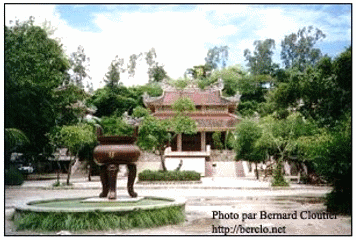
« Tôi không làm chính trị ». Câu trả lời ngắn gọn đã một thời ở đầu môi của một số người iệt khi được mời hay được kêu gọi tham gia một hoạt động, một công tác liên quan đến cuộc hiến đấu bảo vệ tự do của Miền Nam Việt Nam trước tháng 05 năm 1975.Cũng câu trả lời ngắn gọn y được lặp lại bởi số người ấy hay được xử dụng bởi một số người của một thế hệ khác, lâu sau 1975,khi họ được gọi hổ trợ hay tham gia cuộc tranh đấu nhằm dân chủ hóa và hiện đại hóa nước Việt Nam, mang lại tự do cho mọi người, công bằng trong xã hội, để xây dựng một vận hội mới tươi sáng cho quê hương của họ.
Cả trong hai giai đoạn trước và sau 1975, câu trả lời cô đọng này hàm súc một ý nghĩa lớn, mang lại những hậu quả lớn và vì vậy cần được bàn đến một cách nghiêm chỉnh, tương xứng với tầm quan trọng của nó.
«Tôi không làm chính trị» là gì ? Và ngược lại, « Vì sao tôi làm chính trị, tôi tham gia chính trị ?» như nhiều người khác quả quyết. Ở đây, tôi muốn hiểu tham gia chính trị là làm chính trị dưới một hình thức và trong một phạm vi nào đấy, chứ không có môt sự phân biệt nào đáng kể giữa hai cụm từ này.
I – Chính trị là gì ?
Nhưng trước hết, chính trị là gì mà người thích kẻ không như vậy. Được định nghĩa khá rõ ràng ở các quốc gia nhưng ngay ở những nước có văn hóa cao, người ta vẫn có những nhận thức đôi lúc khác nhau về từ ngữ này. Chúng ta sẽ không để mất quá nhiều thì giờ cho việc định nghĩa từ ngữ mà chú trọng đến sự lựa chọn một thái độ, của người Việt ở trong nước hay đang ở nước ngoài : làm chính trị hay không làm chính trị.
Chính trị bao gồm một lãnh vực hết sức rộng lớn như nhiều người hiểu và các tự điển đông tây đều gần cùng một định nghĩa
Trước hết, chính trị là mọi việc liên quan đến công cuộc trị nước an dân. Trong một phạm vi rộng hơn, chính trị là các tương quan giữa nhiều quốc gia, giữa các quốc gia và các định chế quốc tế.
Chính trị cũng là các hoạt động liên quan đến công vụ trong một nước. Các lý thuyết tổ chức một quốc gia, các thể chế, các chủ nghĩa, các cương lĩnh của các chính đảng đều ở tuyến đầu của địa hạt chính trị.
Nhưng chưa hết, chính trị còn là một khoa học, một nghệ thuật chuyên về việc quản trị một quốc gia, tham gia hay điều khiển một chính phủ, chính trị cũng là tổng hợp những sự cố của một nước : tình hình chính trị, sinh hoạt chính trị, bối cảnh chính trị, nền chính trị v.v….
Theo ngôn từ mác-xít, chính trị là phần chính của thượng tầng kiến trúc(superstructure) (1), gồm những chủ thuyết và cơ cấu đầu não của một quốc gia xây dựng trên hạ tầng cơ sở (infrastructure) qui tụ những lực lượng và tương quan sản xuất tạo thành căn bản vật chất của xã hội. Tách khỏi cái ngôn từ sặc mùi đối đầu giai cấp này, hạ tầng cơ sở là hệ thống đường sá, cầu cống, phi trường, hải cảng….tất cả những phương tiện và cấu trúc dùng cho việc giao thông vận tải và rộng hơn cho sự hoạt động của một nền kinh tế quốc gia.
Tóm lại, ít có một từ ngữ nào rộng nghĩa hơn từ ngữ chính trị, bao trùm nhiều lãnh vực quan trọng liên quan đến một quốc gia, các định chế quốc tế và cả thế giới nói chung.
II – Làm hay không làm, tham gia hay không tham gia chính trị
Định nghĩa rộng rải và rõ ràng của từ ngữ chính trị được thông dụng và chấp nhận khắp nơi, làm sáng tỏ vấn đề tham gia hay không tham gia, làm hay không làm chính trị, đối với môt người trong cộng đồng, trong quốc gia của họ, trong thế giới (chính trị quốc tế), và đặc biệt đối với chúng ta, người Việt ở trong nước hay người Việt đang ở hải ngoại vì bất cứ môt lý do gì. Đặc biệt vì chúng ta là một trong vài dân tộc bất hạnh nhất trên địa cầu, đã phải chịu đựng một cuộc chiến tranh lúc ác liệt, lúc tạm ngưng, ròng rã ba mươi năm trời rồi , tiếng súng lặng im, chịu đựng tiếp một chế độ hà khắc từ ba mươi năm nay và giờ đây thiết tưởng đã đến lúc cần phải thay đổi.
Thế nhưng, trước khi đề cập đến chuyện của chính chúng ta, hãy tìm hiểu vì sao vấn đề làm hay không làm chính trị, tham gia hay không tham gia chính trị cũng được đặt ra ở khắp nơi trên thế giới. Tìm hiểu vì, ngoài những lý do riêng của chúng ta, các lý do khác đều chung chung giống nhau, loài người vẫn được mệnh danh từ lâu là những “con vật chính trị“.
Thật vậy, với định nghĩa vừa trình bày, không ít thì nhiều, ở nước nào cũng vậy, ai cũng tham gia chính trị, trực tiếp hay gián tiếp, dưới hình thức này hay hình thức khác, qua những hành động trong cuộc sinh hoạt hằng ngày. Ai cũng có những quan hệ ràng buộc mình với xã hội, với quốc gia của mình, những bổn phận cũng như những nhiệm vụ
Hành sử những quyền công dân trong một nước dân chủ như bầu cử , ứng cử vào các chức vụ dân cử là một thể hiện rõ rệt nhất của sự tham gia chính trị. Đại đa số dân chúng các quốc gia dân chủ tham gia việc nước qua hình thức thông dụng này.
Tranh đấu chống lại gian lận bầu cử, đòi hỏi quyền ứng cử, công khai vận động cho một hay nhiều ứng cử viên tức là làm chính trị, dấn thân chính trị, phục vụ và bảo vệ nền dân chủ của quốc gia. Không có những thành phần năng động và can đảm này, nhiều nước kém mở mang đã có thể trở thành nạn nhân của những chế độ độc tài hay không thoát khỏi được các chế độ quân phiệt. Sự biến đổi quan trọng trong chiều hướng dân chủ hóa ở Châu Mỹ la-tinh trong ba thập niên vừa qua là một bằng chứng không chối cải được của sự kiện lịch sử này.
Phát biểu một ý kiến, xác định một lập trưòng về một vấn đề liên quan đến quyền lợi của xứ sở, của dân tộc, của cộng đồng thế giới là tham gia chính trị bằng sự bày tỏ một tư tưởng, một quan điểm của một người dân trong một nước dân chủ, tự do.
Hoạt động trong một tổ chức, một đoàn thể, một đảng phái chính trị tức là làm chính trị với mức độ dấn thân (engagement, commitment) để thực hiện và phục vụ một lý tưởng, một hoài bảo, một mục đích vượt lên trên quyền lợi cá nhân của mình.Sự cấu tạo một nền dân chủ đích thực bắt nguồn từ đây vì sự học hỏi và thực tập dân chủ đã được diển ra phần lớn trong khu vực, trong môi trường chủ yếu này.
Giữ một trọng trách trong chính quyền, tham dự chính phủ, là làm chính trị bởi sự san sẻ quyền hành và thụ lãnh trách nhiệm trước những cơ cấu đại diện quốc dân. Nói chung, khi con người đã tiến đến thời kỳ tổ chức sinh sống thành một cộng đồng một xã hội, một quốc gia thì hầu hết đều tham gia chính trị để góp phần của mình vào sự tồn tại và phát triển của quốc gia mình. Tham gia tích cực, tham gia với ý thức sâu xa hay nhiều lúc tham gia mà không biết hay không cần biết mình tham gia vì trong nhiều trường hợp một sự tán đồng hay bất đồng, hay ngay cả sự giử im lặng trước một hành vi một sự cố xảy ra trong nước hay trong thế giới đã là một thái độ chính trị, nghĩa là một sự tham gia ở một mức độ nào đấy, công khai hay âm thầm, lặng lẽ.
Bên cạnh sự tham gia chính trị của đại đa số, cố nhiên còn lại những người không muốn “dính” đến, không muốn liên hệ đến bất cứ việc gì ngoài chuyện “làm ăn” sinh sống của họ và chủ trương đóng kín cửa với thế giới bên ngoài. Họ chỉ cần sống với họ trong cái võ ốc mà họ tin là kiên cố, mặc cho “thời tiết“ xã hội, chính trị bên ngoài đổi thay sau bức tường cách nhiệt mong manh, giả tạo. Trong cái thế liên lập (interdépendance, interdependence) của các quốc gia ngày nay, một nước không thể tự tách riêng ra để tồn tại một mình được thì một cá nhân càng không thể tự giam mình trong cái vũ trụ tí hon của mình được. Vươn ra khỏi cái phạm vi hạn hẹp của mình, kết hợp với xã hội chung quanh mình, san sẻ những mối lo chung, những hy vọng chung, thực hiện những dự án, những công cuộc lợi ích chung, chia xẻ những ngọt bùi chung, đấy là tham gia chính trị, làm chính trị. Và chính cái năng lực chính trị tổ chức được thành xã hội, thành quốc gia đã tạo nên sự phân biệt lớn lao giữa con người và con vật dù cả hai đều là những sinh vật, một thời xa xưa trong tiền sử không khác gì nhau mấy.
Thế nhưng, qua bao nhiêu thời đại, từ khi ý thức chính trị còn sơ đẳng cho đến khi phát triển đến cao độ, sáng tạo nên những qui luật trị nước an dân thì bên cạnh những người làm chính trị tốt có lý tưởng, năng lực và đạo đức đã góp phần vào những công trình xây dựng nên sự hưng thịnh của quốc gia, phúc lợi cho thế giới thì cũng không thiếu những chính trị gia hoạt đầu, những kẻ lợi dụng lòng tin của dân chúng gởi gắm nơi mình, những kẻ dùng bạo lực tranh đoạt quyền thế hảm hại đồng bào, những kẻ dùng tà thuyết lường gạt nhân dân, những kẻ bất lương tham nhũng hợp tác với những kẻ tòng phạm “không làm chính trị“ nhưng biết làm tiền bằng mọi cách kể cả bán rẻ lương tâm và danh dự.
Từ xưa đến nay, từ Âu sang Á, ở các nước độc tài cũng như ở các nước dân chủ, phường chính trị gia kể trên không thiếu. Đành rằng trong nghề nào và ở bất cứ đâu cũng có “con sâu làm rầu nồi canh” nhưng con sâu trong nồi canh chính trị càng lớn mạnh, hậu quả càng tai hại cho một xã hội, một quốc gia. Thành kiến bất lợi của một số người dành cho người làm chính trị và cho cả việc chính trị theo nghĩa họ hiểu, bắt nguồn một phần lớn từ loài sâu bọ này
Nhưng không phải vì hiện tượng sâu bọ này mà sự tham gia chính trị, sự dấn thân chính trị giảm bớt hào quang, một vầng hào quang kết hợp bằng lý tưởng phục vụ công ích, bằng sự chấp nhận và thực thi những dòi hỏi khắt khe về đạo đức, bằng những nỗ lực làm việc và phục vụ một chính nghĩa, bằng những đóng góp và hy sinh vật chất và tinh thần, bằng sự chấp nhận những hiểm nguy không thiếu, tất cả cho sự thành công của một đại cuộc. Tham gia chính trị, làm chính trị là chấp nhận một thách đố chống nghịch cảnh, vượt ra khỏi cái tôi nhỏ bé của cá nhân mình, hoà mình với mọi người để cùng nhau phục vụ cho cộng đồng, cho xứ sở của mình, cho thế giới mà mình và đất nước của mình phải là một thành phần xứng đáng và hửu ích có khả năng mang lại phần đóng góp chứ không chỉ ngửa tay xin xỏ suốt đời.
Tham gia chính trị, làm chính trị là tự ý gánh lấy một phần trách nhiệm đối với quốc gia dân tộc, chống lại thái độ đứng ngoài cuộc, đóng vai trò “quan sát viên vô tư “ trong lúc đối tượng được quan sát chính là xứ sở, quê hương mình đang ở trong cơn hoạn nạn và đang khẩn thiết cần đến mình để vượt thoát và vươn lên.
Lâu trước 1975, trong thập niên năm mươi, thành phần“trùm chăn này“ đã được ngụy trang dưới nhiều hình thức để che đậy sự nhát sợ của một số người, làm giảm thiểu phần nào khả năng chống Cọng để bảo vệ tự do lúc bấy giờ. Họ không thích cộng sản, họ lo sợ cộng sản chiếm hết Miền Bắc (trước hiệp định Genève tháng 07, 1954 lực lượng Cộng sản còn được gọi là Việt Minh chỉ chiếm giữ một phần lãnh thổ ở thôn quê và một số ít tỉnh ở Miền Bắc và Miền Trung) và Miền Nam Việt Nam nhưng họ không tham gia chính trị vì sợ mang màu sắc chống Cộng, có thể bịết đâu một ngày nào đấy bị trả thù. Tiếc thay cho họ, sự khôn ngoan và phòng xa chu đáo không giúp họ tránh khỏi cảnh ngộ chung của toàn dân, năm 1954 đất nước phân đôi, một triệu người di cư từ Bắc vào Nam và từ tháng tư đen năm 1975 hàng triệu người kể cả họ phải rời bỏ quê hương, lần lượt ra đi khắp bốn phương trời ...
III – Chính trị với người Việt ở hải ngoại.
Khi nói với người Việt ở hải ngoại về vấn đề này, tôi muốn ám chỉ tất cả những người gốc Việt hiện ở ngoài Việt Nam, dù họ mang quốc tịch nào, miễn là họ còn tưởng nhớ đến quê hương, trung thành với nguồn gốc và còn ấp ủ trong lòng tình đồng bào Việt Nam ruột thịt. Và cũng trong phạm vi mở rộng của vấn đề “ làm gì cho quê hương“, tôi sẽ không phân biệt những người ra đi trước hay sau 1975 vì những lý do có thể giống nhau , có thể khác nhau tùy theo hoàn cảnh, tùy theo trường hợp của mổi người, mổi gia đình, và tùy theo tình thế biến chuyển không ngừng của đất nước trong hơn nửa thế kỷ khổ nạn với mấy lần vật đổi sao dời.
Lắm lúc trong một cuộc đời, người ta không làm chủ được số phận của mình. Nhưng điều quan trọng là cố gắng tối đa, không vội nản lòng trước khó khăn trở ngại, không chỉ biết lo cho mình mà còn phải san sẻ nổi lo chung của dân tộc.
Tôi muốn dành vài hàng ngắn ngủi để nhắc lại sơ qua một việc nhỏ nhưng có ý nghĩa tương tự như câu chuyện ngày hôm nay, tại mục này: chính trị với người Việt ở hải ngoại. Hoàn cảnh có khác nhau và nhiều năm tháng đã trôi qua nhưng câu chuyện như mới diễn ra ngày nào vì nhiều người trong cuộc vẫn còn đây như giáo sư Lê Mộng Nguyên và nơi hội họp vẫn còn đó, nguyên vẹn ở đường Monge, quận 5 thành phố Paris. Tôi đến thủ đô nước Pháp một ngày đầu thu 1959, chỉ một mình sau khi phái đoàn Quốc Hội Việt Nam Cộng Hòa mà tôi là một thành viên rời Nhã Điển (Athènes) thủ đô của Hy Lạp và hội nghị Liên Hiệp Quốc Tế Nghị Sĩ vừa bế mạc. Mục đích duy nhất là nói chuyện, đúng hơn là tranh luận, với sinh viên Việt Nam mà một số đáng kể là thân Cộng hay đảng viên cộng sản thật sự trong tổ chức Liên Hiệp Việt kiều.
Thời ấy, các sinh viên này rất hung hãn nhất là đạo luật về an ninh quốc gia vừa được ban hành ở Miền Nam để trừng trị các hoạt động phá hoại, khủng bố. Mặt Trận giải phóng Miền Nam thành hình sau đấy. Công tác này chỉ là một sáng kiến của tôi, một hành động tự nguyện và được Tổng thống Ngô Đình Diệm chấp thuận. Tôi muốn thực hiện một cuộc tiếp xúc trực tiếp giữa những người Việt ở trong nước và ngoài nước, đặc biệt giữa những người trẻ dấn thân ở bên này và bên kia chiến tuyến, với sự mong ước, có lẽ là tham vọng, thuyết phục những người trí thức trẻ tuổi đang nghiêng về phía bên kia trở về với chính nghĩa quốc gia, trở về với lý tưởng tự do dân chủ.
Còn là một thanh niên chưa đến ba mươi tuổi lớn lên giữa thời tao loạn, tôi đã và đang làm nhiều nghề (giáo sư, luật sư, chủ bút và chủ báo,….) và cũng đã trải qua nhiều thử thách, tù đày, gian khổ. Có lẽ nhờ vậy chăng mà tôi đã quen và vẫn muốn đương đầu với nghịch cảnh thay vì tránh né khó khăn miễn là phục vụ được lý tưởng của mình. Sau khi đắc cử Dân Biểu quốc hội và được bầu vào các chức vụ Phó Trưởng Khối Liên Minh Xã Hội (từ năm thứ hai của pháp nhiệm, tôi làm Trưởng Khối) và Chủ Tịch Ủy Ban Lao Động- Xã Hội-Y Tế ( từ năm sau, tôi lần lượt giử chức vụ Chủ Tịch các Ủy Ban Nội Vụ, Quốc Phòng), tôi nhận thấy cần thừa dịp phó hội ở Hy Lạp,sang thẳng Paris để thực hiện một công tác “giải độc” ở hải ngoại chắc chắn không phải là dễ dàng vì ai cũng biết nơi đây là trung tâm hoạt động mạnh nhất của Cộng sản Việt Nam ở Âu Châu, đặc biệt của giới sinh viên và thợ thuyền Việt kiều trong tổ chức Liên Hiệp Việt kiều thời ấy.
Tôi đã thảo luận công khai, trực tiếp với các sinh viên đủ mọi thành phần, quốc gia, thân Cọng, cộng sản thực sự, thảo luận mọi vấn đề liên quan đến tình hình đất nước, đời sống của sinh viên, thảo luận trên căn bản mà tôi đề nghị: quyền lợi chung của xứ sở và tình tự dân tộc. Vì giới hạn của bài này và vì không phải chổ nên tôi không thể kể lại chi tiết ở đây nhưng có thể tóm tắt là buổi họp rất sôi nổi, “phe “ thân Cộng và Cộng không áp đảo được như họ vẫn thường làm trong các vụ hội thảo mà cuối cùng họ chịu lặng im thấy rõ.
Đại Sứ VNCH, bác sĩ Phạm khắc Hy mời tôi ở lại Pháp ít lâu để tổ chức những buổi thảo luận tương tự ở các tỉnh nhưng tôi phải về nước vì nhiều công việc đang chờ đợi tôi.
Bao nhiêu nước đã chảy qua dưới cầu từ độ ấy.Một cuộc đổi đời đã diễn ra. Ngược lại với sự thay đổi vị thế trong nước mà anh bộ đội ở rừng rú và tên cán bộ công an nằm vùng ở Sài gòn đã trở thành cảnh sát chỉ đường giao thông của thành phố tạm thời mang tên “bác", tại hải ngoại, trên toàn khắp thế giới, con cháu của “ bác” biến đâu mất, kể cả các đại diện ngoại giao cũng núp lén cố thủ trong các công ốc của nhiệm sở.
Họ cẩn thận tránh né cũng phải vì ba triệu người Việt ở khắp nơi không thích họ, nhiều người còn hận thù, chuyện rủi ro có thể xảy ra cho họ nếu ai đó thổi mạnh hòn than đỏ ấp ủ dưới lớp tro tàn mỏng manh. Mất chính quyền, mất chủ quyền ở trong nước bởi bạo lực của một cuộc xâm lăng trắng trợn, ngược lại ở ngoài nước, dân Việt Nam đã thành công lớn, đã thắng lợi lớn trong cả hai phạm vi tinh thần lẫn vật chất.
Từ Mỹ Châu, Úc Châu đến Âu Châu, Á Châu, cộng đồng người Việt quốc gia đã hiên ngang công khai làm sáng tỏ trở lại trước công luận thế giới, chính nghĩa của cuộc đấu tranh bị hiểu lầm và bị xuyên tạc trước đây bởi đạo quân thứ năm của cộng sân quốc tế, bởi những trí thức và ngụy trí thức tả khuynh ở Tây phương, đặc biệt trong giới truyền thông đại chúng, báo chí và truyền hình của Hoa kỳ, của Tây Âu, nghĩa là của cái được mệnh danh là Thế giới Tự do (!) thời bấy giờ.
Tại Hoa Kỳ, lần lượt gần bảy-mươi thành phố ở khắp các vùng trong Liên bang chính thức công nhận lá cờ quốc gia Việt Nam nền vàng ba sọc đỏ là biểu tượng của cộng đồng người Việt trong lúc vài thành phố quan trọng có đông người Việt ở Nam California quyết định không bảo đảm an ninh cho các viên chức của chính quyền Hà Nội mà họ khuyến cáo không nên lai vãng đến. Hành động có ý nghĩa đặc biệt này quả thật là hiếm hoi trong lịch sử bang giao quốc tế mà Hoa Kỳ muốn dành cho người Việt định cư trên đất nước của họ để bày tỏ sự tôn trọng của họ đối với sự lựa chọn chính trị hàng đầu của người Việt bất chấp qui lệ nếu không phải là qui ước ngọai giao.
Cộng đồng người Việt mà đại đa số là đồng bào tỵ nạn cộng sản và con cháu của họ, lớn lên hoặc sinh trưởng tại hải ngoại, đã thành công rực rỡ trên đất tạm dung. Tư cách, tài năng của người Việt đều được công nhận khắp nơi.Tỷ lệ học giỏi ở trung học và đại học ở Hoa Kỳ cũng như ở Âu Châu ngang với hoặc cao hơn tỷ lệ của dân bản xứ trong lúc tỷ lệ tội phạm ít hơn hẳn so với mọi sắc dân khác.Khoảng ba trăm ngàn chuyên viên đủ ngành đang hoạt động, lợi nhuận tương đương với dân bản xứ cùng trình độ.
Nhưng một điểm đáng chú ý- và cũng là một vấn đề cần xét lại – là trong năm vừa qua người Việt ở hải ngoại đã gửi hoặc mang về nước ba tỷ đô la Mỹ, bằng tổng số ngoại viện và quan trọng hơn nữa là bằng tiền mặt. Riêng khu vực thành phố Sài – gòn củ đã chiếm hơn một tỷ tám trăm triệu. Một vấn đề cần xét lại vì ngoài những trường hợp trợ giúp nhân đạo hay bà con, bạn hữu túng thiếu cần giúp đỡ, chúng ta không thể cung ứng phương tiện nuôi dưỡng một chế độ độc tài, độc đảng, tham ô nhũng lạm, áp bức, bất công.
Một chế độ đang bị thế giới văn minh lên án, môt chế độ mà chính những người cộng sự còn lương tri, những nhà trí thức trong nước, những cựu đảng viên cộng sản cao cấp đã thức tỉnh, những nông dân nghèo khổ ở châu thổ sông Hồng, những đồng bào sắc tộc ở Cao Nguyên thậm chí đến những chiến binh đã chiến đấu hy sinh cho chế độ suốt một cuộc đời, tất cả đã chống đối công khai, không sợ hãi, không lùi bước. Vì tất cả đã đi đến giới hạn cuối cùng của khả năng chịu đựng, của sự nhẫn nhục và trên hết, vì tất cả đã nhận thức nguy cơ của một quốc gia đang thoái hóa với các giá trị tinh thần đạo đức truyền thống của dân tộc bị suy sụp trước sự đăng quang thách thức của thế lực kim tiền,, một thứ kim tiền thủ đắc một cách bất chính và bất lương trên thảm cảnh của đại đa số sống chật vật dưới rất xa mức nghèo khổ.
Đồng bào chúng ta ở hải ngoại lẽ nào làm ngơ trước đồng bào ruôt thịt trong nước đang bị gọng kềm của chế độ xiết chặc, lẽ nào im lặng trước những người bất chấp đe dọa hiểm nguy đang đứng lên tranh đấu cho tự do, dân chủ và quyền sống xứng đáng của con người.
Con người của thế kỷ hai-mươi-mốt mà đời sống đang được phát triển toàn diện, tinh thần và vật chất, ở hầu hết các quốc gia trên thế giới ngày nay, con người mà dân Việt đang mơ ước và có quyền mơ ước được như vậy. Chính bạn ở hải ngoại là con người ấy mà đồng bào ruột thịt của bạn ở quê hương đang mơ ước.
Bạn đang ở Hoa Kỳ, nước giàu mạnh nhất thế giới, với tổng sản lượng nội địa tính theo đầu người (produit intérieur brut par personne PIB – gross domestic product per capita GDP) là 44.469 đô-la hay 34.207 euros tinh theo mãi lực (parité du pouvoir d’achat PPA , purchasing power parity PPP), bạn đang ỏ Âu Châu, khu vực đồng euro với 31.035 đô-la Mỹ hay 23.874 euros theo những con số chính thức vào tháng giêng 2005 của những cường quốc phát triển nhất. Trong cùng lúc, bà con của bạn ở quê nhà có lợi nhuận trung bình một năm tính rộng nhất vẫn dưới 700 đô - la Mỹ, thấp khoảng năm lần lợi nhuận trung bình của người dân Thái Lan kế cận và thấp hơn nhiều lần nữa so với lợi nhuận của người dân Đại Hàn, Đài Loan, khỏi phải sánh với ngưòi dân xứ Hoa Anh Đào mà lợi nhuận (33.165 đôla Mỹ) cao gấp bảy-mươi lần lợi nhuận của dân ta ! Cùng một giống người “da vàng mũi tẹt”, cùng sinh sống trên miền Đông Á, họ đã vượt Việt Nam ngày nay quá xa trên mọi lãnh vực, văn hóa, chính trị, khoa học kỹ thuật, kinh tế, xã hội …và không một ai trong bọn họ muốn tranh dành cái “đỉnh cao của trí tuệ loài người “ mà các vị lãnh đạo Cộng sản Bắc Việt đã, không cười rởn và rất nghiêm chỉnh, tự gán cho mình vào cuối thập niên bảy-mươi khi họ hoàn tất sự nghiệp cách mạng vĩ đại đưa dân tộc Việt Nam trở về thời đại đồ đá!
Từ cái hố sâu xa cách lợi nhuận thăm thẳm này, chúng ta không còn phải ngạc nhiên trước tình trạng cơ cực của đại đa số đồng bào ở khuất lấp trong nông thôn và trong xó hẻm của các đô thị. Một tình trạng không thể che đậy được bởi cái bề ngoài hào nhoáng và đồ sộ của các khách sạn quốc tế, những tiệm ăn sang trọng mùi vị thơm ngon, những khiêu vũ trưòng rực rỡ ánh đèn màu, tất cả dành cho người ngoại quốc , một số ít Việt kiều giàu có về thăm quê (số đông không đến được những nơi này vì quá đắt ngay đối với họ) và đặc biệt cho các nhà “tư bản đỏ “, cán bộ cao cấp của “đảng ta “ và những kẻ làm ăn với chúng. Trên vỉa hè trước mặt, các em bé đang tranh nhau xin tiền và xin ăn chút dư thừa! Xa hơn, kín đáo hơn, các em bé khác đang phải bán mình để nuôi thân và nuôi cha mẹ, những bậc sinh thành đã không tìm ra được việc làm để nuôi con, đành phải ăn vội bát cơm chan nước mắt tủi nhục với con, căm hờn với chế độ đã tạo nên cuộc đổi đời nhục nhã, tang thương này.
Xa hơn nữa, ở nước láng giềng Căm-Bốt, có những em bé Việt mới tám tuổi hoặc lớn hơn nhưng vẫn còn vị thành niên đã được cha mẹ bán đi hoặc đưa đến đây hiến dâng trinh tiết rồi hành nghề mãi dâm để nuôi gia đình. Và càng xa hơn nữa, ở tận Trung Đông, ở Đông Âu, ở tận Đại Hàn, Đài Loan vv….nhiều bà mẹ Việt Nam đã được xuất cảng lao động đến đấy để làm người giúp việc ở tư gia, một số còn bị lợi dụng tình dục, đau xót tủi nhục đến tột cùng, thương nhớ chồng con không kể xiết nhưng họ không còn sự lựa chọn nào hơn giữa ra đi để kiếm sống, và ở lại để cả gia đình cùng khốn đốn vì khó kiếm được việc làm. Người phụ nữ Việt lại còn phải trải qua những ngày đen tối khác khi nhiều thiếu nữ vì nghèo khổ phải chấp nhận lấy chồng để cha mẹ được một số tiền nhỏ - vài trăm đô la Mỹ- rồi theo chồng về Trung Hoa hay Đài Loan sống như tôi tớ trong nhà chồng hoặc trong một số trường hợp bị ép làm những điều đồi phong bại tục.
Tình trạng chính trị , kinh tế, xã hội, vừa được tóm lược không phải để bêu xấu một chế độ vì chế độ xã hội chủ nghĩa ở Việt Nam đã không thể dấu diếm che đậy gì được nữa mà chỉ để nhắc nhở và kêu gọi đồng bào Việt ở hải ngoại làm một cái gì cho quê hương, cho đồng bào ruột thịt trong nước, cho tương lai của dân tộc.
IV - Chúng ta không thể làm ngơ được nữa.
Cùng nhau chúng ta phải chung sức vận dụng khả năng tối đa của mình để tranh đấu cho sự phục hồi tự do, dân chủ, cho sự tôn trọng nhân quyền, cho sự tôn trọng tự do tín ngưỡng và hành đạo của các tín đồ, hoàn trả vô điều kiện tài sản của tất cả các giáo hội Phật Giáo, Thiên Chúa Giáo, Tin Lành, Phật Giáo Hoà Hảo, Cao Đài Giáo, Đạo BàLa Môn …
Chúng ta phải tranh đấu tại hải ngoại bằng mọi cách hửu hiệu nhất, công khai hay tiềm ẩn, trực tiếp hay gián tiếp,cả bề rộng lẫn bề sâu,để công luận thế giới công khai nhìn nhận tình trạng của một dân tộc tám-mươi triệu người bị khống chế và đàn áp bởi một chế độ độc tài, độc đảng xây dựng bằng bạo lực, một dân tộc trong suốt ba mươi năm nay, kể từ ngày Cộng sản Bắc Việt thôn tính Miền Nam Việt Nam, không được biết một cuộc bầu cử tự do và trung thực nào cả. Một sự nhìn nhận và theo dõi của thế giới, tạo áp lực mạnh trên chế độ, mở đường lúc cần thiết cho một sự can thiệp như thế giới đã từng can thiệp và sẽ can thiệp ở nhiều nơi mà dân chúng trong nước bị đàn áp bởi chính quyền của nước họ.
Chúng ta phải hổ trợ tối đa các hoạt động của đồng bào trong nước đòi hỏi tự do, dân chủ, đặc biệt của những nhà trí thức, những người cộng sản củ đang thất vọng và phẫn uất với chế độ đã phản bội họ, những nông dân ở Miền Bắc đã đứng lên chống lại cán bộ cướp ruộng, cướp đất của họ và đánh đuổi bọn Công An đến giải tán họ
Trước cái khí thế đáng khâm phục của đồng bào đang dâng lên chống lại cường quyền, chúng ta phải ngăn tránh mọi hành động vô tình hay gián tiếp tiếp tay củng cố một chế độ đã và đang tận tình khai thác cái thân thể đã héo mòn và suy nhược của Đất Nước cho cái túi tham không đáy của những kẻ cầm đầu và thừa hành của chế độ.
Chúng ta không để cho Cộng sản Hà Nội biến chúng ta thành một loại con tin chỉ vì chúng ta muốn về thăm quê hương. Nếu vì những lý do gia đình hết sức đặc biệt mà phải về trong một thời gian ngắn thì mổi một người trở về ấy phải tìm mọi cách thuận lợi và hửu hiệu nhất để thông báo cho đồng bào trong nước biết rằng nhiều cường quốc và lực lượng dân chủ trên thế giới đang tố cáo và cảnh cáo nghiêm khắc chính phủ Hà Nội về những chánh sách và hành động thô bạo vi phạm dân quyền và nhân quyền, kiểm soát chặc chẻ và đàn áp các tôn giáo. Các cường quốc và lực lựng dân chủ này đứng đầu là Hoa Kỳ sẽ không ngần ngại tiếp tay hổ trợ cho các dân tộc đứng lên tranh đấu cho tự do dân chủ của họ như Tổng Thống Georges W. Bush đã tuyên bố long trọng để mở đầu nhiệm kỳ thứ hai này của ông.
Hơn bao giờ hết, đồng bào Việt ở hải ngoại phải đóng góp công của, năng lực, tài trí của mình vào sự nghiệp xây dựng một vận hội mới tự do, dân chủ, hoà bình và tiến bộ cho Quê Hương .Hơn lúc nào hết, chúng ta phải cảnh giác trước các mưu mô, các thủ đoạn của Cộng đảng nhằm lung lạc tinh thần, chia rẻ hàng ngũ chúng ta.
Chính nghị quyết hớ hênh số 36 của bộ Chính trị Cộng đảng Hà Nội đã tự vạch trần các âm mưu ấy đưa ra những luận điệu tuyên truyền nịnh bợ rẻ tiền đối với Việt kiều đồng thời xen lẫn một lời hù dọa trẻ con lỗi thời và lạc chổ với những người chống lại họ đang ở nước ngoài và là công dân của các nước ấy ! Và rất đỗi lạ lùng khi họ đòi giúp đỡ cho Việt kiều , hầu hết ở Âu Mỹ, nơi mà người dân có lợi nhuận trung bình từ sáu-mươi-lăm đến một trăm lần nhiều hơn lợi nhuận của đồng bào ta ở quê nhà, mà Đảng ta và Nhà Nước ta không hề đếm xỉa đến và đành đoạn bỏ quên.
V - Nói với thế hệ trẻ, con cháu Lạc Hồng
Trong cộng đồng người Việt ở hải ngoại, ngoài sự thành công của các bậc cha anh, thế hệ trẻ trên dưới ba mươi đã làm rạng danh cho dân tộc Việt ở Âu Châu cũng như ở Mỹ Châu, Úc Châu trên phương diện học vấn và cũng đã hội nhập khá dễ dàng các quốc gia nơi họ trưởng thành.
Tôi muốn nói thêm vài lời với các bạn trẻ ấy, với thế hệ lớn lên hoặc sinh trưởng ở hải ngoại. Nói thêm vì các cháu chưa biết nhiều hay chỉ biết quê hương qua những tin tức của báo chí và cac phương tiện truyền thông khác, qua những lời kể lại của những người nào đấy, cố nhiên với những nhận định của họ, có thể phản ảnh đúng sự thật, có thể không vì thiếu tính khách quan. Hoặc có thể các cháu có về thăm quê hương nhưng chưa đi đến nhiều nơi trong nước mà chỉ có thì giờ thăm vài thắng cảnh, vài di tích lịch sử, thăm bà con và sống vài hôm ở vài đô thị lớn như Hà Nội, Sài Gòn, v.v ... Nhưng các cháu không có đủ thì giờ và người hướng dẫn để quan sát tận nơi và nhiều nơi, đời sống thực, kham khổ, của nhiều giới đồng bào, xa cách và tương phản với cảnh tượng phồn hoa, thịnh vượng giả tạo, bề ngoài, phô trương lố bịch như một sự thách thức không kiềm chế và kiêu căng đối với thân phận hẩm hiu của đại đa số, của quảng đại quần chúng , nghĩa là của hơn bảy-mươi triệu người tức hơn 87 % tổng số dân tám-mươi triệu người trong nước.
Mười triệu người may mắn hầu hết ở thành thị, một ít ở nông thôn, gồm ở đỉnh cao nhất, giới “tư bản đỏ “ giàu từ vài chục triệu đến nhiều trăm triệu đô la Mỹ. Các nhà tư bản này là các cấp lãnh đạo đảng Cộng sản và Nhà Nước, các cán bộ có quyền thế và đía vị trong suốt hệ thống dọc và ngang của chính quyền và trong các xí nghiệp quốc doanh. Bên cạnh tư bản đỏ là giới tư bản “vòng ngoài” chỉ đường mách nước, cộng tác làm ăn chia phần, cũng giàu có như tư bản đỏ.
Không như các cháu ở nước ngoài phải cố gắng học hành,xin trợ cấp, học bổng, vay mượn và nhiều lúc phải làm việc thêm đặng có đủ tiền “ăn học“ở bậc đại học, không thiếu các con cháu của các nhà tư bản nói trên đang ở bậc trung học phổ thông đã được gửi đi du học ở Âu Mỹ, tiêu xài không giới hạn, vượt hẳn con nhà giàu ngoại quốc, như muốn trả thù cho thời kỳ bố mẹ còn là vô sản thứ thiệt, một thời kỳ mà họ không dám nhắc đến nữa vì sợ bị các đồng chí củ lên án phản bội lý tưởng và bỏ rơi hàng ngủ !Trong lúc ấy, tại Thái Bình ổ Miền Bắc, Quảng Nam ở Miền Trung, Cà Mâu ở tận cuối Miền Nam và khắp các nơi khác, nhiều chục ngàn em bé đang còn ở bậc tiểu học đã phải bỏ học trong niên khóa 2004-2005 này vì cha mẹ các em không “ chạy “ ra tiền để đóng góp cho trường!
Các cháu đang ở kinh đô ánh sáng Paris, các cháu đang làm việc ở trong một toà nhà chọc trời lộng lẫy ở New York hay Chicago , làm sao các cháu quên đành đi được các em bé đáng thương này và các em bé khác đang ăn xin trước các khách sạn, đang chạy theo xin tiền các du khách hay đang bán thân để nuôi cha mẹ già như đã kể trên. Cũng như các cháu, các em bé bất hạnh này mang cùng với cháu, với tất cả cộng đồng Việt Nam ở hải ngoại, một giòng máu Lạc Hồng, nhưng vận số rủi ro đã để các em ra đời dưới bầu trời xã hội chủ nghĩa của quê hương
Nhiệm vụ của tất cả chúng ta, cao niên, trung niên và thanh nữ, thanh niên như các cháu là phải góp phần tích cực và đắc lực vào công cuộc tìm kiếm và thực hiện một giải pháp khả dĩ mang lại tự do, dân chủ cho đất nước, mở đường cho một vận hội mới tươi sáng cho toàn thể dân tộc.
Không có một cơ hội nào thuận lợi hơn, không có một vinh dự nào xứng đáng hơn là được cống hiến mọi nỗ lực và khả năng của chúng ta vào sự nghiệp lớn lao này, vào lúc này, khi mà trong nước cũng như ở khắp thế giới những huyền thoại về Hồ Chí Minh, về chiến tranh chống Mỹ, chống tư bản đế quốc, về thiên đàng hứa hẹn của Đảng v.v ... đã sụp đổ và tan biến như một luồng gió độc thổi qua và những sự thật của lịch sử đã được phơi bày và kiểm chứng mà không còn ai chối cải được nữa , và đặc biệt hơn nữa, khi mà giờ đây diễn biến hoà bính đang chuyển động mạnh, sẽ dẫn đến mục đích cuối cùng: dân chủ hoá nước Việt Nam.
Ngoài việc lo cho đời sống cá nhân và gia đình, mổi một chúng ta vẫn có thể luôn luôn vươn mình lên để theo đuổi và thực hiện một lý tưởng cho cuộc đời , và còn lý tưởng nào cao đẹp hơn, thiết thân hơn, thiêng liêng hơn là phục vụ cho quê hương, cho giống nòi của mình. Trưởng thành xa tổ quốc, các cháu sẽ gặp được nơi môi trường phục vụ này những cơ hội gần gủi với nguồn gốc, xa tránh được nổi lo âu lạc mất căn tính (perte d’identité, loss of identity) điều mà bất cứ ai lớn lên ở xứ lạ quê người cũng có thể cảm nhận một ngày nào đó khi bơ vơ như lạc lỏng giữa những người có thể là bạn bè gần gủi nhưng màu da, chủng tộc khác nhau chưa kể phong tục tập quán nhiều lúc không giống nhau và chắc chắn không cùng một ngôn ngữ.
Tiếp đến nhưng chưa phải là lý do cuối cùng, từ phương vị một chuyên viên dù tài giỏi chăng nữa nhưng luôn luôn thúc thủ trong địa hạt chuyên môn của mình ở nước ngoài mà người tài không thiếu trong các quốc gia phát triển, các cháu có thể trở thành những thành phần quan trọng trong việc tái thiết và hiện đại hóa xứ sở, trở thành những nhân vật góp phần hoạch định các kế hoạch, các chính sách của Nhà Nước Việt Nam tương lai, và biết đâu, và tại sao không, trở thành những người lãnh đạo của một Nhà Nước mà các cháu và cha,mẹ, anh, chị, em của các cháu sẽ cùng đồng bào trong nước đứng lên xây dựng trong tiến trình dân chủ hóa quê hương, một tiến trình đang được đẩy mạnh và không một thế lực nào ngăn cản được.
Dân số Việt Nam đã bắt đầu vượt quá tám-mươi triệu. Nếu được dân chủ hoá, hiện đại hoá, canh tân hóa, lành mạnh hóa, nếu được lãnh đạo bởi những người yêu nước, thương dân, có khả năng, có đức độ, chắc chắn quê hương của chúng ta sẽ chiếm được một địa vị xứng đáng trong cộng đồng các nước văn minh tiền tiến trong thế giới.
Các cháu phải tham dự, phải dành chổ trong cuộc hành trình về nguồn và hướng tới bến vinh quang này, một cuộc hành trình đòi hỏi nhiều nỗ lực nhưng đầy phấn khởi và chứa chan hy vọng ở tương lai.
Hẵn nhiên, các cháu tiếp tục như thường lệ công việc nghề nghiệp của mình tại quốc gia các cháu đang cư ngụ cho đến ngày các cháu tự quyết định lấy tương lai theo tình hình mới của quê hương. Nhưng giờ đây, sự tham gia hoạt động chỉ đòi hỏi ở các cháu quyết tâm đóng góp tài trí và tâm huyết của các cháu vào công cuộc chung của những người muốn biến đổỉ hiện trạng của nước nhà bằng một đường lối tranh đấu quả cảm, kiên trì, bằng những phương thức dân chủ công khai trước thế giới đang nhìn thẳng vào Việt Nam và sẵn sàng hổ trợ khi cần thiết.
Các cháu không thể giam giữ tuổi trẻ của mình trong cái vỏ ốc nhỏ bé để hưởng thụ và tự mãn với vài tiện nghi vật chất rồi chôn vùi cả cuộc đời như một kẻ vô danh lạc lõng trong cái xã hội mà các cháu đã hội nhập.
Đã đến lúc các cháu phải lựa chọn giữa một cuộc đời tầm thường và phí phạm như vậy và một cuộc đời hào hứng, đầy ỳ nghĩa và hữu ích cho các cháu, cho quê hương của các cháu, một cuộc đời mà các cháu có quyền hãnh diện và có thể mang lại vinh quang xứng đáng cho chính các cháu.
* * * * *
Làm chính trị, tham gia chính trị hay không, giữa lúc quê hương đang chờ đợi ?
Thiết tưởng chúng ta đã trả lời minh bạch.
Câu trả lời của những người Việt ở hải ngoại mà tâm tư luôn luôn hướng về quê hương, đất tổ, với niềm tin bất diệt ở một tương lai sáng lạng của nước Việt Nam tự do, dân chủ, hòa bình, tiến bộ, nối tiếp lại với những truyền thống nhân bản, hòa ái, đạo đức, và quyết tâm mạnh tiến trên con đường canh tân toàn diện sau khi cái vòng ngoặc tai ương của lịch sử được khép lại vĩnh viễn.
Paris, đầu Xuân Ất Dậu, 2005
Lê Trọng Quát
(1) Vài danh từ có nghĩa chuyên môn được dịch kèm theo Pháp ngữ và Anh ngữ thể theo lời yêu cầu của một số độc giả không quen nhiều với các danh từ Hán Việt.
-Xin lưu ý : Nhiều năm đã trôi qua nhưng vấn đề chính yếu trình bày vẫn còn nguyên tính cách thời sự và trong hiện tình ở quê hương, sự dấn thân của mọi người yêu nước, yêu chuộng tự do, dân chủ, đặc biệt các bạn trẻ, cần phải được khẩn thiết đặt ra một cách toàn diện hơn bao giờ cả.Những số liệu ghi trong bài cần được cập nhật theo hiện tại.
Paris, tháng 7, 2013
Lê Trọng Quát
Paris, tháng 4, 2020
Lê Trọng Quát
**********************************
Bản tiếng Anh
To do or not to do politics for Homeland?
- What is politics ?
- To do or not to do, to participate or not to participate in politics?
- Politics with overseas Vietnameses
- We can't ignore it anymore
- Talk to the younger generation, the Lac Hong descendants
« I don't do politics ». The short answer was once upon the lips of some Vietnamese when invited or called to participate in an activity, a task related to the fight for the freedom protection of South Vietnam before May 1975.
The same short answer was repeated by those same people or used by some Vietnamese of another generation, long after 1975, when they were called to support or participate in the fight to democratize and modernize Vietnam, bringing freedom and social justice to all, and to create better opportunities for their homeland.
In both the periods before and after 1975, this brief answer implies a serious meaning, has dire consequences, and therefore needs to be carefully examined to evaluate its impact on the future of Vietnam.
What does « I don't do politics» mean? And vice versa, what does « I’m involved in politics» mean? Here, I would like to emphasize “political participation” as a form of “doing politics” and to some extent, do not distinguish the two terms.
I - What is politics?
First and foremost, we need to define what politics is.
Because even in highly developped countries, people understand the term « politics » differently. We will not spend too much time defining the word but will instead focus on the choice of an attitude, of Vietnamese living in Vietnam or abroad: political or non-political.
Politics covers a very vast field as many people understand it and dictionaries of East and West have almost the same definition.
Politics is everything related to the work of ruling the people. To a broader extent, politics is the relationship between nations and international institutions, and among many nations themselves.
Politics is also civil service-related activities in a country. The theories of organizing a nation, the institutions, the doctrines, the credo of the political parties are at the front line of the political realm.
Politics is also a science, an art specializing in the governance of a country, joining or controlling a government; politics is also summarizing the incidents of a country: the political situation, political activities, political context, politics etc.
In Marxist terms, politics is the main part of superstructure (1), including the doctrines and politburo structures of a nation built on infrastructure, as well as the forces and correlation of production that constitute the basic material of society. Apart from the class struggle, language confrontation, the infrastructure was a system of roads, bridges, airports, ports, etc. all the means of vehicles and structures used for transportation and other purposes for the functioning of a national economy.
In short, few words are more meaningful than political ones, covering many important areas related to a nation, international institutions and the world at large.
II - Doing or not doing, participating or not participating in politics.
Extensive and clear definitions of political terms are commonly and universally accepted. To clarify the issue of participation or non-participation, doing or not doing politics, is important for every one especially for us, Vietnamese living in at home or Vietnamese living abroad for any reason. Such a clarification is more compelling given the fact that our unfortunate people had experienced violence and hardship during a fierce war for thirty years, and when gunfire went silent, over one million people had fled the country and thousands had perished during their journey for freedom while millions of others have been enduring an oppressive and corrupt regime controlled by the Vietnamese Communist Party (VCP) since 1975. It is now time to change.
Before talking about our own level of political participation, let us look at this issue at some other countries. Humans have long been dubbed "political animals".
Indeed, with the definition just stated, more or less, in every country, everyone participates in politics, directly or indirectly, in one form or another, through actions in daily activities. Everyone has relationships that bind him / her to society, to his country, and to the exercise of civic rights in a democratic country such as elections, running for elected office, the most obvious manifestation of political participation. The vast majority of the people of democratic nations participate in politics through this popular form.
Fighting against electoral fraud, demanding the right to stand for election, openly campaigning for one or more candidates means being political, committed to politics, serving and defending the nation's democracy. Without these dynamic and courageous components, many underdeveloped countries would have been fallen victim to dictatorship or other military regimes. The important change in the trend of democratization in Latin America in the past three decades is an indisputable evidence of this historic event.
Expressing an opinion, determining a position on an issue related to the interests of the country, the people, the world community is to participate in politics with the expression of ideas, a view of a people in a democratic and free country.
Operating in an organization, a union, a political party means doing politics with the level of commitment to implement and serve an ideal, an ambition, a purpose beyond personal interests. The creation of a true democracy originates here because democratic learning and practice has taken place largely in the region, in this core environment.
Maintaining an important role in civil service, or participating in a government is doing politics by sharing power and assuming responsibility with entities representing the nation. In general, when people have moved to the period of organizing to live as a community, a nation, most of them participate in politics to contribute to the existence and development of their country. Active participation, participation with deep awareness or in many times participating without knowing you participate because in many cases, an agreement or disagreement, or even keeping silence before an action, an incident that occurred within the country or in the world, was a political attitude, a certain level of political participation, open or silent.
Besides the political participation of the majority, there are people who do not want to "get involved", do not want to involve anything other than "earning" their living and advocating to shut the door to the outside world. They just need to live with themselves in what they believe to be solid, despite the social and political "atmosphere" that changes behind the fragile, artificially insulated wall. In today’s interdependence of nations, a country cannot separate itself to exist alone, the less an individual can confine himself in his tiny universe. Reaching out of his limited scope, associating with the society around him, sharing common concerns, common hopes, implementing projects, common interests, sharing the positive things in general, it is political participation. And it is the political capacity to organize society into a nation that makes a great distinction between human beings and animals even though both are creatures with no big difference from each other in a prehistoric ancient time.
Over the ages, from the primitive political consciousness to the heightened development, the creation of laws to rule the people was undertaken by good politicians with idealism, the capacity and morality that have contributed to the construction of national prosperity and the well-being of the world. Unfortunately, a number of bad politicians have taken advantage of people’s trust by using violence to fight for power, and use evil to deceive the people. These corrupt evildoers cooperate with accomplices who “do not do politics” but know how to make money with every means, including the cheap sale of conscience and honor. There is no shortage of bad politicians as mentioned above throughout the ages across the globe, in dictatorial as well as democratic countries. There is a "worm that makes the soup spoiled", but the more the worm in the political soup grows, the more harmful the consequences are for a society and a nation. The negative prejudice of some people for politicians and for politics in this context has stemmed largely from this pest. Political corruption in certain circles should not diminish the desire to participate in politics. Political participation requires commitment to serving the public and the common good. By accepting and enforcing rigorous professional and moral demands, by giving material and spiritual contributions and sacrifices, by accepting indispensable dangers, all for the success of a great mission, this is how one would experience the aura of public service. To participate in politics is to accept challenge against adversity, go beyond the small self of your individuality,
mingle with people to work together for the community, for your country, for the world that we and our country must be a worthy and helpful component capable of delivering a contribution, not just begging for a lifetime.
Participating in politics is to voluntarily taking part in the responsibility for the nation, opposing the attitude of being an outsider playing the role of an "impartial observer" while the country, our homeland is in a tribulation that urgently needs us to rise up now.
Long before 1975, in the fifties, the "blanket boss" component was disguised in various forms to cover up the fear of some people, reducing the ability of our effort against the expansion of the Communist Party, to protect our freedom at that time. They did not like communism, they feared that the Communists would take over the North (before the Geneva Treaty of July, 1954, the Communist forces also called the Viet Minh occupied only part of the territory in the countryside and a few provinces in North and Central Vietnam) and South Vietnam, but they did not participate in politics for fear of wearing anti-Communist colors, and might one day suffer revenge. Unfortunately for them, that wisdom and thoughtful attitude did not help them avoid the plight of the entire people, when the country was split in 1954, one million people migrated from the North to the South and on Black April of 1975, millions including those who left the North in 1954, had to leave their homeland and go all over the world…
III - Politics with overseas Vietnamese.
When speaking to overseas Vietnamese about this issue, I would like to refer to all people of Vietnamese descent who are currently outside of Vietnam, regardless of their nationality, as long as they still remember their homeland and cherish our fellow compatriots in their heart. Within the expanded scope of the "what to do for the homeland" issue, I will not distinguish between those who left before or after 1975 for reasons that may be the same, that may vary depending on the circumstances, particular to each person, every family, and depending on the changing situation of the country during more than half a century of suffering with so many changes.
Sometimes in life, people do not control their destiny. The important thing is to try our best, not to be discouraged by difficulties and obstacles, not to worry about ourselves but to share the common concern of the nation.
I would like to take a few short lines to briefly recall a small but meaningful thing similar to the story today, in this section dealing with politics with overseas Vietnamese. The situation is different and many years have passed but the story seems like it happens every day because many of the insiders are still here such as law Professor Lê Mộng Nguyên and the meeting place is still there, intact, on Monge Street, District 5, City of Paris. I arrived in the French capital the first day of the autumn of 1959, only by myself after the delegation of the National Assembly of the Republic of Vietnam, of which I was a member, had left Athens, the capital of Greece and the International Parliamentary Union Conference just ended. The only purpose was to talk, rather than debate, with Vietnamese students, a significant number of whom were pro-Communist or Communist members of the United Việt Kiều Association.
At that time, these students were the most aggressive at a national security law just enacted in the South to punish criminal destruction and terrorism. The National Liberation Front was formed afterwards. This work was an initiative of mine, a voluntary act and approved by President Ngô Đình Diệm.
I wanted to make a direct contact between Vietnamese people at home and abroad, especially between the young people committed on this side and the other side of the battle, with the desire, perhaps even ambition
to bring back young intellectuals who were leaning toward the other side to the national cause, to the ideal of democracy and freedom.
As a young man nearly thirty years old, I worked many jobs (professor, lawyer, editor etc.) and also went through many challenges and imprisonment, exile, hardship. Perhaps because of that, I have been used to and still want to face adversity instead of avoiding difficulties providing that I can serve my ideals.
After being elected deputy to the National Assembly and then elected Vice President of the Social Democrat Alliance Group, I became from the second year of my mandate, president and chairman of the group and of the Labor-Welfare-Health Committee. During the following years, I was elected chairman of the Interior and National Defense Committees successively. I realized that it was necessary to go straight to Paris to perform an overseas "detoxification". It was certainly not easy because everyone knew that this place was the most powerful center of Vietnamese communists in Europe, especially for Vietnamese students and workers of the Việt Kiều Association at that time.
I discussed openly, directly with students from all backgrounds, nationalists, communists, pro-communists, about all issues related to the situation of the country, students’ life, on the basis that I proposed: the common interests of the country and the patriotic spirit. Due to the limitation of this article and because it was not appropriate, I could not recount the details here but it could be summed up to be a very lively meeting, "the pro-communist and communist factions” were not as overwhelming as they used to be in conferences, and they ended up listening silently.
The Ambassador of the Republic of Vietnam, Dr. Phạm Khắc Hy, invited me to stay in France for some time to organize similar discussions in the provinces but I had to return home because many duties were waiting for me.
Much water has flowed under the bridge since then. A life change has taken place. In the country, the guerilla fighter in the jungle and the underground communist cadre in Saigon became the traffic police in Ho Chi Minh city. On the contrary, Vietnamese communists, all over the world, the “descendants of uncle Ho" disappeared, including the diplomatic representatives also lurking in entrenched offices.
These Communist officials were careful to avoid visibility abroad because the three million overseas Vietnamese living across the globe did not like them, many were still hated, the risk that could befall them if someone blew hard the red charcoal cherished under the fragile ash. Losing the government, losing sovereignty in the country by a flagrant invasion, whereas overseas, the Vietnamese people have been having great success at both spiritual and material levels.
From the Americas, Australia to Europe, Asia, the national Vietnamese community has been openly revealing the public opinion, the cause of the previously misunderstood and misrepresented struggle by the fifth army of the international communism, by leftist intellectuals and many intellectuals in the West, especially the mass media, newspapers and television of the United States, of Western Europe, meaning of what was called the Free World (!) at the time.
In the United States, nearly seventy cities in all regions of the Union, officially recognized the Republic of Vietnam national flag with yellow and three red stripes as the symbol of the Vietnamese unity, while several important cities that house a large number of Vietnamese in Southern California decided not to guarantee the security for Hanoi government officials who are advised not to visit the area. This act is of great significance and indeed rare in the history of international relations; it indicates that the United States wants to show their respect for the Vietnamese residents’ political choice.
The Vietnamese diaspora, the vast majority of which are refugees from the communist dictatorship and their descendants, who have grown up abroad, have been hugely successful in this country away from Vietnam. The status and talent of the Vietnamese people are recognized everywhere. The rate of good Vietnamese students at high schools and universities across the United States as well as across Europe is equal to or higher than that of native people while the crime rate is less than for all other ethnic groups. About three hundred thousand professionals are working in all industries, making a profit equivalent to the local people at the same level.
But one thing that is appalling and is a matter of reconsideration - is that in the past year, Vietnamese overseas have sent or brought home three billion U.S. dollars, equal to the total number of foreign aids and more importantly in cash. Particularly the area of Saigon city accounted for more than one billion eight hundred millions. A question to reconsider, apart from cases of humanitarian assistance for relatives, friends in need, is that we should not provide a financial mean to foster a dictatorship, one-party regime embedded in corruption, oppression, and injustice. It’s an oligarchy that has been practicing blatant human rights violations without impunity.
No financial aid should be given to a regime that is being condemned by the civilized world, a regime that even its conscious partners, intellectuals, former senior Communist Party members have awakened, poor farmers in the Red River delta, ethnic minorities in the Highlands, even the fighters who sacrificed for the regime for a lifetime, have all opposed publicly, fearlessly, not backing down. People have expressed outrage and have cried for help because they all have reached the ultimate limit of endurance, of patience and above all, because all are aware of the risk of a degrading nation with the traditional moral values being debased for the coronation of money that has been illegally and dishonestly acquired by the powerful at the detriment of the poor.
How can our people overseas turn a blind eye to the flesh-and-blood compatriots in the country who are under the grip of an oppressive regime? Our relatives, friends, and all other people in Vietnam have been dreaming of a life like ours. They wish they could live a life like other people in democratic countries where they would be free to vote, to worship, and to love whomever they want.
The United States, the richest country in the world, has a gross domestic product per capita (GDP) of $ 44,469 or 34,207 euros in purchasing power parity. In Europe, the GDP is 31,035 US dollars or 23,874 euros according to official figures in January 2005 of most developed nations. At the same time Vietnamese citizens have at most an average income of less than US $ 700 a month, (1) which is much lower than the income of the people of Korea, Taiwan, and Thailand. Being the same "yellow-skinned" people, living in East Asia, they have surpassed Vietnam today so far in all fields, culture, politics, science, technology, economy, social welfare, and none of them wanted to compete for the "pinnacle of human intelligence" that the North Vietnamese Communist leaders had, not jokingly but very seriously, assigned to themselves in the late seventies when they completed the great revolutionary cause of bringing the Vietnamese people back to the Stone Age!
From this very bottom of incomes, we are no longer surprised by the destitute situation of the majority of the people in the countryside and in the alleys of the cities. A situation that cannot be hidden by the glamorous and massive appearance of international hotels, luxurious restaurants with delicious flavors, colorful dance clubs and colorful lights, all for foreigners, a small number of rich overseas Vietnamese visiting the homeland (the majority cannot access these places because it is too expensive for them right now) and especially for the "red capitalists", the senior officials of "our party" and those who do business with them. On the sidewalk in front of them, kids are scrambling for money and begging for some leftovers! Further, more discreetly, the other children are selling themselves to support themselves and their parents who have no job to raise them and must eat a bowl of rice with tears of shame.
In neighboring Cambodia, Vietnamese children, from about eight year old and older but still adolescents have been sold or brought here by their parents to sell their virginity and then work as prostitutes to support their family. Furthermore, in the Middle East, in Eastern Europe, as far as Korea, Taiwan, etc., many Vietnamese mothers have been sent to work there as domestic servants, some are even sexually abused, in extreme pain and shame, missing her husband and children but they have no choice but to leave their home to earn a living.
A number of poor Vietnamese women were forced to get married to foreigners to get a small sum (several hundreds of dollars) of money for their family.
Many of them ended up being used as servants or sex slaves when they followed their husband to China, Taiwan or some other countries.
The political, economic, and social situation has been summarized not to stigmatize a regime because the communist regime in Vietnam has been unable to hide anything anymore but only to reach out to overseas Vietnamese to help people at our homeland.
IV - We can't ignore it anymore.
Together we must exercise our utmost power to fight for the restoration of freedom, democracy, respect for human rights, respect for the freedom of belief and religion of the believers, and the unconditional return of properties belonging to Buddhist, Catholic, Protestant, Hòa Hảo, Cao Đài, Bà -La -Môn churches…
We must fight abroad in the most effective, explicit or implicit way, directly or indirectly, both breadth and depth, for the public opinion of the world to openly recognize the fact that a country of eighty million people has been controlled and oppressed by a dictatorship, a one-party regime built using violence since the day the North Vietnamese Communist annexed South Vietnam without authorizing free and honest elections. An international recognition with a strong monitoring program would pave the way for an effective intervention that would restore democracy in Vietnam
We must fully support the movements by people in the country that demand freedom, democracy, especially those of intellectuals, former communists who are frustrated and resentful of the regime that betrayed them, farmers in the North who stood up to the officials who robbed their fields and their lands and drove the police to disperse them.
Faced with the admirable atmosphere of the people rising against the present political tyranny, we must not take any unintentional or indirect actions to support a regime that has been driven by greed and corruption to enrich the members of the Communist Party that has stolen property from and empoverished its own people and degraded the environment with the worst marine pollution caused by the Chinese company Formosa.
Do not let the Hanoi communists turn us into hostages just because we want to visit our homeland. If one must return for a short time for a family reason, one must find the most effective way to notify our compatriots that many international organizations have denounced that Hanoi government’s harsh policies and actions violating civil rights and human rights, strict control and suppression of religions will lead to international sanctions. The democratic forces, led by the United States, will not hesitate to assist people to stand up for their democratic freedom as President Georges W. Bush has made a solemn declaration at the opening of his second term.
More than ever, overseas Vietnamese must contribute their ability and talent to build a new opportunity for freedom, democracy, peace and progress for our Homeland. Most of all, we must stay alert to the manipulation and tactics of the Vietnamese Communist Party to shake our morale and divide our ranks.
It was the indiscreet resolution No. 36 of the Hanoi Politburo that exposed these conspiracies itself when it used cheap propaganda to flatter and at the same time to scare overseas Vietnameses who opposed them abroad. And it is very strange that they offered to help them, mostly in Europe and America, where people have an average income of about a dozen times more than that of our compatriots back home that the Communist Party and State disregarded frostily.
V - Talk to the younger generation, the descendants of Lac Hong
At Vietnamese communities overseas, in addition to their parents’ success, the young generation in their thirties has made a reputation for themselves in Europe as well as in the Americas and Australia in terms of education and integration.
I would like to say a few more words to those young people and to the generation that grew up abroad. They might not know much or only know their homeland through the news from the press and other media, and the retellings of certain people, thus might be lacking objectivity. They have not visited Vietnam or if they have, they might have gone only to big cities like Hanoi, Hue and Saigon. They might not have the guidance and/or the time to visit the less known places where people are living a life of hardship and poverty, a far cry from the glamorous and ostentatious life in big cities. This artificial prosperous façade represents an unbridled and arrogant challenge to the humble destiny of the vast majority of the population making up more than seventy million people, an 87% of the total population of eighty millions in the country.
The ten million lucky people are mostly in the city, some in the countryside, including at the peak, the "red capitalists" who are rich having from several
tens of millions to hundreds of millions of US dollars. These capitalists are the leaders of the Communist Party and the State, officials having power and position throughout the vertical and horizontal systems of government and in state-owned enterprises. In addition to the red capitalists, the "outside" capitalist circles have shown the way of cooperating to do business and share, and have become as rich as the red capitalists.
Red capitalists’ children sent to study a high schools in Europe and America, have access to unlimited funds, even surpassing the local rich children as if they wanted to make up for the time when their parents were real
proletarians, a time when they did not dare to mention again because they were afraid of being accused by their comrades for abandoning the band. Unlike the pretentious life style of the red capitalists’ children studying abroad, the average Vietnamese student who wants to study abroad must apply for subsidies, scholarships, borrow money, and sometimes have to work more to have enough money to "study" at the university level.
Meanwhile, in Thái Bình, the North, Quảng Nam in the Central, Cà Mâu at the end of the South and everywhere else, tens of thousands of children who were still in primary school had to drop out in the 2004- 2005 school year because their parents could not afford their education expenses.
You are in Paris, the City of Light, you are working in a splendid skyscraper in New York or Chicago, how can you forget these poor children and other children begging in front of hotels, running after tourists or selling themselves to support elderly parents as mentioned above. Like you and other overseas Vietnamese, these unfortunate children came from the Lac Hong lineage, but were born under the socialist regime.
It is the duty of all of us, seniors, middle-aged women and men, and young people like you, to contribute actively and effectively to the search and implementation of a possible solution to bring freedom to and paving the way for a bright new opportunity for Vietnam.
The myths about Ho Chi Minh, the war against America and imperial capitalism, the Party's promised heaven, etc ... have collapsed and vanished like a breeze. The truth of history has been revealed and verified, and especially now that the peace movement strategy is moving strongly, it will lead to the ultimate goal: democratization of Vietnam.
There is no better opportunity, no greater honor than dedicating all our efforts and abilities to this great cause, at this moment, when at home and all over the world, people have recognized that a democratic Vietnam is the only acceptable reality by all stakeholders.
In addition to taking care of personal and family life, each of us can always stand up to pursue and fulfill an ideal for our life. To serve our homeland is among our top priorities. Working to bring democracy to Vietnam will offer the Vietnamese diaspora and their descendants an opportunity to get closer to their roots thus alleviating their anxiety in losing their identity and culture.
Furthermore, they could use the lessons learned in their adopted country to enrich the life of their brothers and sisters in Vietnam.
Vietnam's population has started to exceed eighty million. If it is democratized, modernized, reformed, and led by virtuous and competent patriots who are primarily driven by the love of the country and its people, Vietnam will win a worthy position in modern history.
You must embark for the journey to your roots and reach a glorious destination after your commitment to devote your attention and can-do attitude to this mission full of hope and excitement.
You continue your career as usual in the country where you live until the day you decide to take on the future according to your new personal situation. For the present time, you can contribute your talent and your enthousiasm to those who are now determined to transform today’s Vietnam through a courageous and democratic struggle transparent to the outside world which is ready to help us when needs arise.
Young Vietnamese overseas! Please don‘t lock up your life in your small shell and be satisfied with that comfort. Please don’t bury it in the anonymity of your host country. It is time for you to choose between a monotonous life and an exalting useful one in the service of your country of origin of which you can be proud and which would bring you a glory worthy of yourself.
To participate or not to participate in politics while the homeland is waiting for us, we have clearly addressed the issue.
An answer to Vietnamese overseas whose minds are always directed towards their mother country and ancestral land, with the undying belief in a bright future of a free, democratic, peaceful and fully modernised Vietnam, resurrecting with the traditions of humanism, national harmony, moral values, and determination to move forward on the path of total renewal after the vicious cycle of history is definitely closed.
Paris, Ất Dậu Spring 2005
Lê Trọng Quát
Paris, July 2013
Lê Trọng Quát
Paris, Aprill 2020
Le Trọng Quát
(1) T"The data presented on GDP and incomes must be updated while the article remains strikingly carried on."
***************************
Bản tiếng Pháp
FAIRE OU NE PAS FAIRE DE LA POLITIQUE POUR SON PAYS
- C’est quoi la politique ?
- Faire ou ne pas en faire ? Y participer ou non ?
- La politique avec les Vietnamiens de l’étranger.
- Nous ne pouvons plus l’ignorer.
- Parler aux jeunes générations, les descendants de Lạc Hồng.
« Je ne fais pas de politique », cette réponse nette et tranchante fut celle d’un certain nombre de Vietnamiens chaque fois qu’ils étaient invités à participer à la lutte pour défendre la liberté du Sud Vietnam d’avant mai 1975.
Aujourd’hui, bien des années après, la même réponse est encore répétée par les mêmes ou par des Vietnamiens d’une autre génération quand on leur propose de participer à l’action de démocratisation et de modernisation du Vietnam, qui ne vise rien d’autre que de promouvoir la liberté, la démocratie et la justice sociale afin de créer de nouvelles opportunités plus favorables pour leur propre pays.
Pendant toutes les deux périodes de l’histoire du Vietnam, avant et après 1975, cette réponse porte en elle-même une signification tellement lourde de conséquences qu’il convient de l’examiner sérieusement pour mesurer son impact sur l’avenir du pays.
Que veut dire l’expression « Je ne fais pas de politique » ? Et a contrario que veut dire l’expression « Je fais de la politique » ?
Que veulent dire ceux qui affirment ne pas faire de politique et ceux qui, au contraire, déclarent vouloir en faire avec non moins de force. J’entends ici que « la participation à l’action politique » n’est qu’une façon de « faire de la politique » et ne distingue pas les deux expressions.
I-LA DEFINITION DE LA POLITIQUE
Pour comprendre l’attitude des gens devant la politique, il faut la définir avec précision. Car même dans les pays à haut niveau culturel on a souvent des notions divergentes de la politique.
Avant tout, la politique est l’art de gouverner. Dans une plus large mesure elle comprend aussi les relations que les nations entretiennent entre elles et celles des nations avec les institutions internationales.
Les théories relatives à l’organisation de l’Etat, aux institutions et aux partis politiques relèvent aussi de la politique.
Dans le langage marxiste qui sous-tend la lutte des classes, la politique est la partie principale de la superstructure. Cette dernière comprend les idéologies, les institutions politiques centrales d’un Etat reposant elles - mêmes sur une infrastructure constituée par les forces productives et les rapports de production, base matérielle de la société.
En définitive, peu de termes ont un sens plus large que le terme politique puisque celui- ci
______________________________
2
englobe plusieurs aspects des plus importants de l’Etat, des institutions internationales et du monde en général.
II-FAIRE OU NE PAS FAIRE DE LA POLITIQUE
La définition de la politique au sens large éclaire la question de la participation ou de la non –
participation à l’action politique. Ceci est très important pour les Vietnamiens de l’intérieur
comme ceux vivant à l’étranger. Notre peuple est un des peuples les plus malchanceux du monde. Après avoir subi une longue guerre par intermittence pendant trente ans, avec des phases de violence succédant à de courtes périodes d’accalmie, il doit vivre depuis trente ans sous le joug d’un régime implacable qu’il est grand temps maintenant de changer.
La question de la participation ou non à l’action politique se pose dans tous les pays du monde. Car d’une manière ou d’une autre, tout homme participe plus ou moins à l’action politique. L’homme n’est-il pas dénommé « animal politique » ? Chacun de nous est lié à sa société, sa nation par un ensemble de droits et d’obligations.
Exercer ses droits de citoyen dans un pays démocratique, poser sa candidature aux fonctions électives sont autant de formes d’action politique. C’est à travers ces activités d’usage que la grande majorité des citoyens participent à la vie politique de leur pays.
Lutter contre la fraude électorale, revendiquer le droit de vote, faire campagne pour un ou plusieurs candidats, c’est faire de la politique, s’engager politiquement pour servir et défendre la démocratie. Sans l’action des hommes dynamiques et courageux, bien des pays en développement seraient déjà tombés sous la domination des régimes dictatoriaux. La démocratisation des pays d’Amérique latine pendant les trois dernières décennies illustre ce fait historique.
Exprimer ses idées, affirmer son point de vue sur les questions qui intéressent le pays ou le monde, c’est faire de la politique, car on montre ainsi sa pensée, son opinion en tant que citoyen d’un pays libre et démocratique.
Participer aux activités d’une organisation, d’un mouvement politique ou d’un parti politique, c’est faire de la politique, c’est prendre son engagement de réaliser et servir un idéal, une aspiration qui dépassent les intérêts particuliers. La vraie démocratie prend sa source ici même. Car l’apprentissage de la démocratie se déroule dans ce champ d’action.
Occuper une fonction dans la structure du pouvoir public, faire partie d’un gouvernement, c’est faire de la politique, puisqu’on accepte ainsi de partager le pouvoir avec les autres et d’engager sa responsabilité devant les organes de la représentation nationale.
Dans l’ensemble, quand les hommes choisissent de vivre en communauté, au sein d’une société, d’un Etat, tout le monde participe d’une façon ou d’une autre à l’action politique pour que survive et se développe la nation. Participation active et volontaire à la vie politique du pays ou participation passive et inconsciente sont également des actes politiques. Le silence lui-même devant un événement qui affecte le pays est aussi une attitude politique.
Cependant, il y a toujours un certain nombre de gens qui ne veulent pas s’impliquer dans l’action politique, qui ne s’intéressent pas à autre chose que leur vie matérielle de tous les jours. Ils s’enferment dans leur coquille bien close sans se préoccuper du « climat » politique et social du monde extérieur.
______________________________
3
En raison de l’interdépendance actuelle des nations du monde, aucun pays ne saurait vivre en vase clos pas plus que l’individu dans son univers isolé. Se hausser au - dessus du cadre étroit de sa vie pour entrer en relation avec la société, pour partager avec les autres les mêmes soucis, les mêmes projets, les mêmes espoirs, c’est faire de la politique.
C’est précisément notre capacité de nous organiser en société, en nation, qui nous distingue
des animaux mêmes les plus intelligents, alors qu’à l’époque préhistorique entre les hommes et eux il y avait peu de différences.
Certes, à travers l’histoire, depuis l’époque où les idées politiques étaient encore rudimentaires jusqu’au jour où elles atteignent le haut point de développement, créatrices des politiques de gouvernance pour le bien de la société, il y a toujours, en dehors des hommes politiques vertueux, des politiciens véreux qui profitent de la confiance du peuple pour s’approprier le pouvoir. Ils profitent également de la passivité de ceux qui « ne font pas de politique » pour faire fortune en bradant leur conscience et leur honneur.
Mais ce phénomène déplorable ne saurait ternir l’auréole prestigieuse de l’action et de l’engagement politiques. Cette auréole est faite de moralité et de sacrifices des hommes politiques vertueux qui, toute leur vie, ont œuvré pour le bien du peuple.
Participer à l’action politique c’est accepter de relever les défis du destin, c’est dépasser sa propre personne pour coopérer avec les autres au service de son pays, pour faire de celui-ci un composant digne et respectable de la communauté internationale et non plus un pays assisté.
Participer à l’action politique c’est prendre volontairement sa responsabilité vis-à-vis de son pays, c’est combattre l’indifférence des gens qui se considèrent comme des « observateurs objectifs », alors que le pays en péril a besoin de chacun des siens pour échapper à son triste sort et se redresser.
Bien avant 1975, pendant la décennie 1950, ces gens qui fuyaient la responsabilité masquaient leur peur sous différentes formes. Leur attitude a amoindri notre capacité de résister au communisme pour défendre notre liberté. Ils n’aimaient pas les communistes, ils ne voulaient pas qu’ils s’emparent du Vietnam. Mais ils n’osaient pas participer à la lutte anti-communiste par peur de leur vengeance. Malheureusement leur prudence ne leur a pas permis d’échapper au sort commun de tout le peuple vietnamien : en 1954 ils ont dû suivre un million de leurs compatriotes du Nord dans l’exode vers le Sud Vietnam, et depuis ce mois d’avril noir 1975, ils ont été comptés parmi ces millions d’hommes et de femmes partis en exil aux quatre coins du monde.
III-LES VIETNAMIENS DE L’ETRANGER ET LA POLITIQUE
Par Vietnamiens de l’étranger, j’entends tous les Vietnamiens qui vivent actuellement en dehors de leur pays, quelle que soit la nationalité qu’ils ont choisie, pourvu qu’ils restent attachés à leur pays d’origine et gardent encore dans leur cœur l’amour pour leurs compatriotes.
Quant à la question de savoir que faire pour la patrie, je ne distingue pas ceux qui ont quitté le Vietnam avant ou après 1975.Car chacun a dû le faire pour des raisons et circonstances qui lui sont propres et en fonction d’interminables changements de la situation du pays pendant un demi-siècle.
Maintes fois dans une vie, on n’est pas maître de son destin. Mais ce qui importe c’est de
_____________________________
4
déployer le maximum d’effort, ne pas désespérer devant les difficultés et les obstacles, ne pas penser qu’à soi-même mais partager le souci commun du peuple.Je voudrais ici évoquer un vieux souvenir personnel qui date d’une époque lointaine mais qui reste encore significatif aujourd’hui : En 1959, venant d’Athènes où j’avais assisté à la conférence de l’Union Internationale Parlementaire, je suis arrivé à Paris les premiers jours d’automne. J’étais alors un jeune homme de moins de 30 ans. Après avoir exercé plusieurs professions (professeur, avocat, rédacteur en chef et directeur d’un quotidien…) et subi bien des épreuves (emprisonnement, infortunes diverses…) j’étais habitué à affronter l’adversité au lieu de la fuir.
Elu député à l’Assemblée Nationale, j’allais occuper successivement différentes fonctions comme Vice-Président, puis Président du Groupe « Alliance Sociale- Démocrate » à l’Assemblée, Président des Commissions des Affaires Sociales, du Travail et de la Santé, des Affaires Intérieures, de la Défense…J’ai jugé qu’il était nécessaire de venir à Paris pour « désintoxiquer » l’opinion publique qui avait de fausses idées sur notre régime. Ce n’était pas une tâche facile car Paris était un lieu où les communistes vietnamiens et leurs sympathisants et alliés s’agitèrent beaucoup.
Lors d’un débat public et contradictoire très animé avec les Vietnamiens de tout bord, j’ai abordé toutes les questions relatives à la situation du pays. Les communistes n’arrivaient pas à avoir le dernier mot et finalement, à court d’arguments, ils ont dû se taire.
Depuis, tant d’eau a coulé sous les ponts. La situation des Vietnamiens s’est profondément modifiée. Les positions des uns et des autres se sont inversées. Alors qu’au Vietnam leurs soldats, ces « bô dôï » sortent de la jungle pour parader à Saïgon et leurs agents de la clandestinité pour régler la circulation dans la cité qui porte provisoirement le nom de leur « oncle Hô », dans les pays étrangers, les communistes vietnamiens, même leurs représentants diplomatiques, n’osent plus se montrer en plein jour par peur des représailles venant des trois millions de réfugiés politiques vietnamiens.
Ayant perdu le pouvoir politique et la souveraineté dans le pays aux mains des envahisseurs communistes, les Vietnamiens de l’étranger remportent par contre, dans leurs pays d’accueil, bien des victoires tant sur le plan moral que sur le plan matériel. Ils ont fait triompher leur juste cause devant l’opinion publique internationale, ayant démontré combien leur combat d’antan était mal compris et dénigré par la cinquième colonne communiste et les intellectuels gauchistes des pays occidentaux.
Aux Etats-Unis, près de 70 grandes villes ont successivement reconnu le drapeau national du Vietnam, jaune avec trois bandes rouges, comme le symbole de la diaspora vietnamienne alors que quelques grandes villes de Californie du Sud ont même décidé de ne plus assurer la sécurité des agents d’Hanoï et leur ont conseillé de ne plus s’aventurer dans les villes où résident de nombreux réfugiés vietnamiens. Décisions tout à fait exceptionnelles dans l’histoire de la diplomatie américaine que l’Administration de ce pays considère comme un choix politique de premier rang des vietnamiens au défi des conventions diplomatiques usuelles entre Etats.
Les réfugiés vietnamiens et leurs descendants ont brillamment réussi dans leurs pays d’accueil. Leur dignité et leur talent ont été reconnus partout.
________________________________
5
.L’an passé, les Vietnamiens d’Outre- Mer ont envoyé au Vietnam trois milliards de US$, l’équivalent du total de l’aide internationale reçue par le Vietnam. Ce fait mérite d’être examiné de près, car en dehors de l’aide familiale, sociale et humanitaire, on se demande à juste titre s’il faut continuer à soutenir financièrement par ce moyen un régime dictatorial, corrompu et répressif qu’est celui d’Hanoï, actuellement condamné, à l’extérieur, par tous les pays civilisés et combattu, à l’intérieur, par les intellectuels révoltés, les paysans dépouillés de leurs terres et même par des membres dissidents du parti communiste.
Ces derniers, tous, n’en peuvent plus supporter et sont parfaitement conscients du danger que court actuellement la nation qui a vu s’effondrer ses valeurs morales et spirituelles traditionnelles face à la montée provocante de la puissance de l’argent, qu’une minorité de gens sans scrupules a gagné sur le dos de la grande majorité subsistant en-dessous du seuil de pauvreté.
Les Vietnamiens de l’étranger ne sauraient donc rester indifférents au sort de leurs compatriotes, victimes d’un régime impitoyable. Ils ne sauraient davantage observer en spectateurs la lutte menée par des combattants courageux pour faire triompher la liberté, la démocratie et le droit pour tout homme de vivre dignement.
Cet homme du XXIème siècle qui, dans la plupart des pays du monde, a atteint un haut niveau de développement moral et matériel et que rêvent de devenir les Vietnamiens.Vous êtes bien cet homme à l’étranger, bénéficiant de ce niveau de développement dans votre pays d’accueil.
Vous qui vivez aux Etats Unis, le pays le plus riche et le plus puissant du monde qui dispose d’un revenu intérieur brut (PIB) par tête de 44 469 US$ ou 34 207 euros. Vous qui vivez en Europe avec un revenu moyen de 31 035 US$ ou 23 874 euros, alors qu’au Vietnam le revenu par tête est évalué au maximum à 700 US$, c'est-à-dire 5 fois moins que nos voisins Thaïlandais et 70 fois moins que les Japonais. Et pourtant les dirigeants d’Hanoï, dans les années 70, ne cessaient de se vanter d’être « le sommet de l’intelligence », eux qui, en trente ans, ont ramené notre pays à l’époque paléolithique.
Devant ce fossé abyssal des revenus entre le Vietnam et les pays voisins, il n’est pas étonnant de voir partout, à la campagne et dans les bas quartiers des villes, le spectacle de la pauvreté. La surface insolente des grands palaces magnifiques, des restaurants luxueux, des boîtes de nuit aux lumières resplendissantes réservés aux touristes étrangers, aux hauts cadres du régime et aux « capitalistes rouges », cache mal les cruelles réalités d’une économie artificielle à la dérive. Car sur le trottoir d’en face, des enfants en haillons se bousculent autour des touristes pour mendier ou se disputer les restes des repas.
Plus loin et plus discrètement, d’autres enfants se prostituent pour faire vivre leurs parents. Des mères de famille « s’exportent » pour travailler à l’étranger où elles subissent quotidiennement humiliations et abus sexuels. D’autres femmes sont obligées de se marier avec les étrangers, Chinois ou Taiwanais, contre une poignée de dollars pour permettre à leurs parents de survivre.
La situation économique et sociale n’est pas évoquée ici pour dénigrer le régime en place car rien n’a pu être dissimulé mais juste pour attirer l’attention des Vietnamiens de l’étranger sur la nécessité de répondre à l’attente de nos compatriotes.
------------------------------------------------------------------------------------
6
IV-NOUS NE POUVONS PAS RESTER INDIFFERENTS AU SORT DU PAYS
Ensemble nous devons mobiliser tous nos moyens et énergies dans la lutte pour le respect des droits de l’homme, la liberté et la démocratie au Vietnam, pour la liberté de croyance, le libre exercice du culte des religions, la restitution sans condition des biens des Eglises (catholique, protestante, bouddhique, Hoa Hao, Cao Dai…)
A l’étranger, nous devons recourir aux moyens les plus efficaces pour faire connaître à l’opinion publique internationale la situation d’un peuple de 80 millions de personnes, qui n’a connu aucune élection libre depuis 30 ans et qui reste toujours opprimé, humilié et réprimé par un régime dictatorial à parti unique. La pression de l’opinion peut ouvrir la voie à l’intervention de la communauté internationale telle qu’elle a été faite en d’autres lieux où des populations étaient opprimées par leur propre gouvernement.
Nous devrions appuyer au maximum l’action de nos compatriotes réclamant la liberté et la démocratie, notamment celle des intellectuels, des anciens communistes déçus et trahis par le régime, des agriculteurs du Nord, qui se sont opposés fermement aux expropriations forcées de leur terrains et rizières en repoussant les agents de sécurité hors de leurs villages.
Devant cette marée montante de la révolte de notre peuple contre la tyrannie nous devrions éviter tout acte, volontaire ou involontaire, susceptible de renforcer un régime qui exploite sans pitié un pays en ruine pour enrichir ses acolytes dont l’avidité est sans limite.
Ne laissons pas les communistes d’Hanoï profiter de notre désir de visiter notre terre ancestrale pour nous prendre en otage. Si pour des raisons familiales exceptionnelles nous devons rentrer au pays pour une courte période, chacun de nous doit trouver le moyen d’informer nos compatriotes que plusieurs grandes puissances dont les Etats-Unis en tête et des forces démocratiques du monde ne cessent de dénoncer les violations des droits civiques et humains au Vietnam. Elles n’hésiteront pas à aider tout peuple qui mène la lutte pour défendre sa liberté et la démocratie comme l’a solennellement déclaré le Président George W. Bush lors de l’inauguration de son second mandat.
Plus que jamais, les Vietnamiens de l’étranger doivent contribuer par leurs biens, leurs talents et leurs énergies à l’édification d’une nouvelle ère de liberté, de démocratie, de paix et de progrès pour le Vietnam.
Plus que jamais, nous devons rester vigilants face aux noirs desseins du Parti communiste vietnamien (PCV) visant à semer le trouble et la division dans nos rangs. La résolution No 36 de son Bureau politique elle-même les a dévoilés quand elle avançait des arguments de pure propagande pour flatter et menacer à la fois les Vietnamiens de l’étranger.
Et bien étrange que les communistes d’Hanoï se proposent d’« aider » les Vietnamiens vivant en Europe et aux Etats-Unis qui disposent des revenus cent fois supérieurs à ceux de leurs compatriotes au pays, qu’ils ont abandonnés froidement à leur triste sort.
V- MESSAGE AUX JEUNES VIETNAMIENS DE L’ETRANGER
A l’étranger, avec la réussite de leurs aînés, les Vietnamiens des nouvelles générations, nés et grandissant loin de leur pays d’origine ont par leurs succès scolaires et universitaires honoré
------------------------------------------------------
7
le peuple vietnamien tant en Europe, en Australie qu’aux Etats-Unis. Leur intégration s’y est
déroulée sans aucun problème.
Je voudrais m’adresser, ici, à vous, jeunes et brillants compatriotes pour vous dire ceci :
Soit vous connaissez notre pays Vietnam à travers la lentille des médias ou à travers ce qu’on vous a raconté avec des observations qui auraient pu refléter ou fausser les réalités du pays selon des perceptions différentes.
Soit vous le connaissez lors de brèves visites touristiques durant lesquelles vous avez pu voir de beaux paysages, des sites historiques prestigieux, des parents, quelques grandes villes comme Hanoï et Saïgon. Mais vous n’avez pas eu le temps nécessaire pour observer de près la misère de vos compatriotes contrastant avec les apparences grotesques d’une prospérité et d’un luxe tout artificiels et insultants pour les 87% de la population qui subsistent dans des conditions particulièrement difficiles.
Dix millions de gens chanceux vivant en ville et quelques- uns à la campagne constituent le sommet de la société. On les dénomme « les capitalistes rouges » qui possèdent des millions, voire des centaines de millions de dollars. Dirigeants du Parti Communiste, de l’Etat, des cadres puissants qui occupent les fonctions importantes dans la structure du pouvoir politique et dans les grandes entreprises publiques. A côté d’eux, ce sont les capitalistes du « cercle extérieur » aussi riches, associés ou complices dans des combines multiformes.
Tandis que vous devez tous déployer de sérieux efforts pour obtenir des bourses, emprunter de l’argent et même travailler pour financer vos études supérieures, les enfants des « capitalistes rouges » sont envoyés, dès qu’ils sont encore dans l’enseignement secondaire, à l’étranger pour faire leurs études dans le luxe, dépassant même le train de vie des enfants des riches des pays d’accueil, comme s’ils voulaient faire la revanche de cette période où leurs parents étaient de vrais prolétaires et qu’ils n’osaient plus évoquer, redoutant une accusation de trahison et désertion de la part de leurs anciens camarades.
Au même moment, des dizaines de milliers d’enfants ont dû abandonner leurs classes primaires de cette année 2004-2005 parce que leurs parents n’ont pu payer leurs frais de scolarité.
Vous qui vivez dans la « Ville de la lumière » de Paris, vous qui vivez dans de beaux gratte-ciels à New York ou à Chicago, comment pourriez-vous oublier ces pauvres enfants et d’autres qui courent après les touristes étrangers pour mendier devant les hôtels ou qui se vendent comme il a été dit pour aider leur famille. Dans leurs veines coule le même sang que le nôtre. Comme nous tous, ils auraient descendu de l’union légendaire d’un Dragon sacré et d’une Déesse fondateurs du peuple vietnamien. Malheureusement, le destin a voulu qu’ils naissent et grandissent dans un pays gouverné par les communistes.
Notre devoir à tous, jeunes comme vieux, est de travailler activement et efficacement à la recherche d’une solution susceptible de faire triompher la liberté et la démocratie au pays et d’ouvrir la voie à un avenir radieux pour le peuple.
L’opportunité que nous avons en ce moment n’a jamais été aussi propice pour atteindre cet objectif. Aucune oeuvre n’est aussi glorieuse que cette action au service du pays. Actuellement, au Vietnam comme dans le monde entier, le mythe Ho Chi Minh glorifiant la
------------------------------------------
8
guerre anti-capitaliste, anti-impérialiste, s’est dissipé comme un mauvais vent pour faire apparaître toute la vérité historique. Bien plus, le processus pacifique de démocratisation est
en marche pour conduire le Vietnam vers la liberté.
En dehors de sa propre famille dont chacun de vous s’occupe activement, vous pouvez toujours poursuivre un idéal de votre vie. Et il n’est plus noble idéal que celui de servir sa patrie et son peuple. Vivant loin de votre pays d’origine, vous trouverez dans cette action l’occasion de retrouver vos racines et le moyen d’éviter la perte d’identité. Vivant loin de notre pays, nous sentons parfois le poids de la solitude, même quand nous nous trouvons parmi les amis les plus proches. Car évidemment ceux-ci ne sont pas de la même race, n’ont pas le même héritage culturel que nous.
Vous pouvez être très compétents et performants mais à l’étranger vous vous cantonnez plus souvent dans vos activités professionnelles, dans vos spécialités. Dans vos pays d’accueil développés, il ne manque pas de talents alors que chez nous on a besoin de vous. Vous pouvez jouer là- bas un rôle très important dans la reconstruction et la modernisation du pays. Vous pourrez même devenir plus tard des dirigeants qui décideront de la politique d’un Etat en marche vers la démocratisation qu’aucune force ne pourra entraver.
La population du Vietnam commence à dépasser 80 millions d’habitants. Une fois démocratisé, modernisé et assaini par des dirigeants ayant le sens de l’Etat, proches du peuple, et d’une moralité hors de tout soupçon, notre pays saura occuper une position digne de son rang dans la communauté internationale.
Vous devriez participer à ce voyage de retour aux sources, un voyage exaltant qui exige beaucoup d’efforts mais qui vous mènera vers une fin glorieuse.
Pour l’instant, vous continuez à exercer normalement vos activités professionnelles dans vos pays de résidence jusqu’au jour où vous prendrez votre décision sur votre avenir à la lumière de la situation du pays. Votre participation à l’action politique consiste maintenant à soutenir par votre intelligence et votre ardeur la lutte commune menée avec détermination par tous ceux qui veulent transformer le pays par voie démocratique face au monde, qui nous regarde et nous soutient si nécessaire.
Vous, jeunes Vietnamiens de l’étranger, il ne faut pas vous enfermer dans vos petites coquilles individuelles pour vous contenter de quelques conforts matériels. Il ne faut pas enterrer votre vie dans l’anonymat du pays d’accueil. Il est temps pour vous de choisir entre une vie monotone qui est un pur gâchis et une vie exaltante et utile menée au service de la nation d’origine, dont vous pourrez être fiers et qui vous apportera une gloire digne de vous.
-------------------
Faire ou ne pas faire de la politique au moment où la mère- patrie vous attend ? Je crois que la réponse est claire. C’est celle des Vietnamiens d’Outre- Mer dont le cœur se tourne vers la
terre ancestrale avec une foi indestructible dans l’avenir radieux d’un Vietnam libre et démocratique, un Vietnam qui renoue avec ses valeurs morales traditionnelles, d’humanisme
----------------------------------------------------------------------
9
et de fraternité, un Vietnam qui avancera avec détermination dans le renouveau quand la sinistre parenthèse communiste de l’histoire sera définitivement fermée.
Paris, début du Printemps Ất Dậu, 2005
Lê Trọng Quát
Paris, Juillet 2013
Lê Trọng Quát
Paris, Avril 2020
Lê Trọng Quát
N.B. Les données chiffrées présentées dans cet article sur le PIB, les revenus doivent être actualisées mais son contenu reste saisissant d’actualité.
----------o0o-----------

